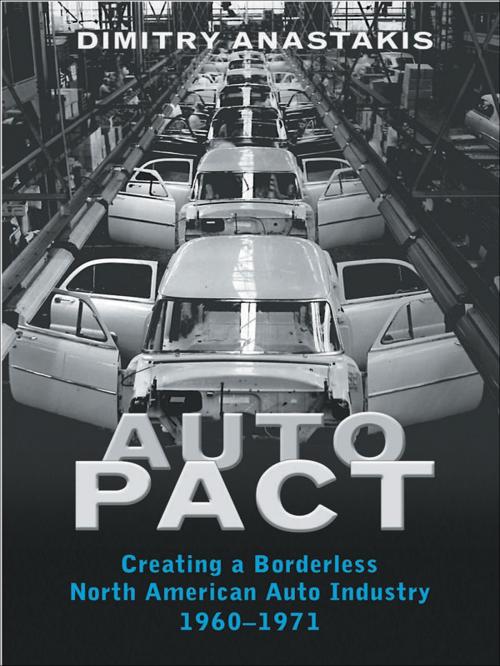Auto Pact
Creating a Borderless North American Auto Industry, 1960-1971
Nonfiction, History, Americas, North America, Business & Finance, Industries & Professions, Industries| Author: | Dimitry Anastakis | ISBN: | 9781442690516 |
| Publisher: | University of Toronto Press, Scholarly Publishing Division | Publication: | November 26, 2005 |
| Imprint: | Language: | English |
| Author: | Dimitry Anastakis |
| ISBN: | 9781442690516 |
| Publisher: | University of Toronto Press, Scholarly Publishing Division |
| Publication: | November 26, 2005 |
| Imprint: | |
| Language: | English |
The 1965 Canada-United States Automotive Trade agreement fundamentally reshaped relations between the automotive business and the state in both countries and represented a significant step toward the creation of an integrated North American economy. Breaking from previous conceptions of the agreement as solely a product of intergovernmental negotiation, Dimitry Anastakis's Auto Pact argues that the 'big three' auto companies played a pivotal role - and benefited immensely - in the creation and implementation of this new automotive regime. With the border effectively erased by the agreement, the pact transformed these giant enterprises into truly global corporations.
Drawing from newly released archival sources, Anastakis demonstrates that, for Canada's automotive policy makers, continentalism was a form of economic nationalism. Although the deal represented the end of any notion of an indigenous Canadian automotive industry, significant economic gains were achieved for Canadians under the agreement. Anastakis provides a fresh and alternative view of the auto pact that places it firmly within contemporary debates about the nature of free trade as well as North American - and, indeed, global - integration. Far from being a mere artefact of history, the deal was a forebearer to what is now known as 'globalization.'
The 1965 Canada-United States Automotive Trade agreement fundamentally reshaped relations between the automotive business and the state in both countries and represented a significant step toward the creation of an integrated North American economy. Breaking from previous conceptions of the agreement as solely a product of intergovernmental negotiation, Dimitry Anastakis's Auto Pact argues that the 'big three' auto companies played a pivotal role - and benefited immensely - in the creation and implementation of this new automotive regime. With the border effectively erased by the agreement, the pact transformed these giant enterprises into truly global corporations.
Drawing from newly released archival sources, Anastakis demonstrates that, for Canada's automotive policy makers, continentalism was a form of economic nationalism. Although the deal represented the end of any notion of an indigenous Canadian automotive industry, significant economic gains were achieved for Canadians under the agreement. Anastakis provides a fresh and alternative view of the auto pact that places it firmly within contemporary debates about the nature of free trade as well as North American - and, indeed, global - integration. Far from being a mere artefact of history, the deal was a forebearer to what is now known as 'globalization.'















